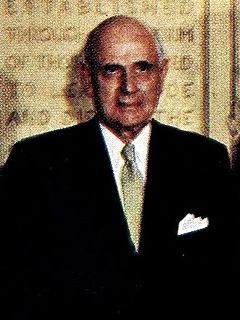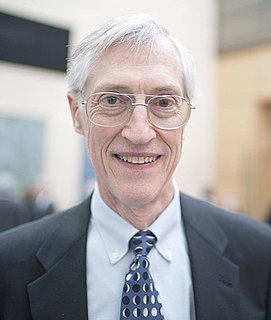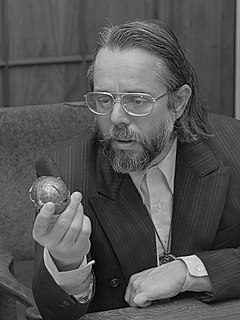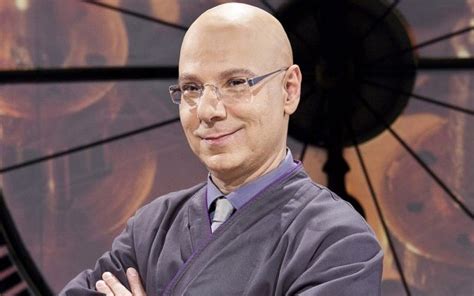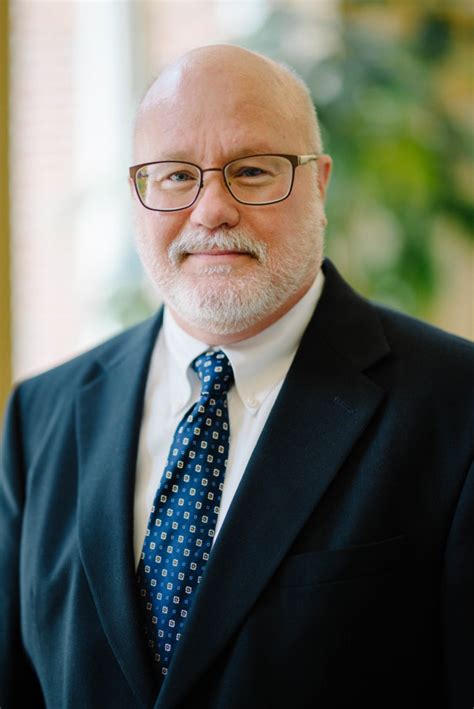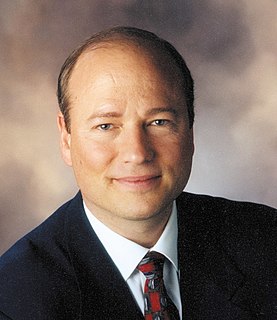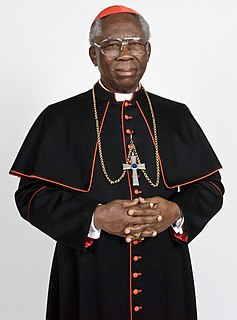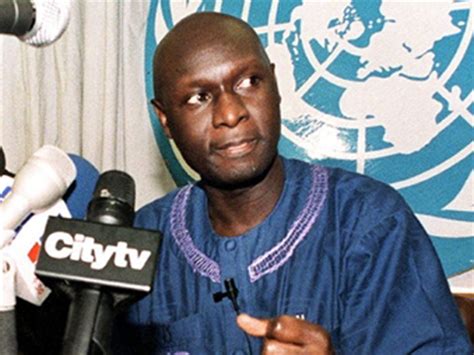Top 1200 Religious Traditions Quotes & Sayings - Page 2
Explore popular Religious Traditions quotes.
Last updated on November 7, 2024.
What we need to understand is that when traditions become laws, rules, obligations and expectations others put on us that we don't want to fulfill, then they lose real meaning and steal the joy from our lives. And if we're too religious, we won't be able to be led by the Holy Spirit and enjoy an intimate relationship with Him.
We have our religious traditions coming from many thousands of years, and I think to myself, well, you know, if Moses had come down with tablets from the mountain that said, 'And guess what? There are protons and neutrons, and they are made out of quarks,' people wouldn't have understood what he said. So he didn't.
I then greet and cordially thank you all, dear friends belonging to other religious traditions; first of all the Muslims, who worship the one God, living and merciful, and call upon Him in prayer, and all of you. I really appreciate your presence: in it I see a tangible sign of the will to grow in mutual esteem and cooperation for the common good of humanity.
It is terrible that we all die and lose everything we love; it is doubly terrible that so many human beings suffer needlessly while alive. That so much of this suffering can be directly attributed to religion—to religious hatreds, religious wars, religious delusions and religious diversions of scarce resources—is what makes atheism a moral and intellectual necessity.
Obama has no way to conceal that Osama was executed in front of his children and wives, who are now under the custody of the authorities of Pakistan, a Muslim country of almost 200 million inhabitants, whose laws have been violated, its national dignity offended, and its religious traditions desecrated.
A kernel of truth lurks at the heart of religion, because spiritual experience, ethical behavior, and strong communities are essential for human happiness. And yet our religious traditions are intellectually defunct and politically ruinous. While spiritual experience is clearly a natural propensity of the human mind, we need not believe anything on insufficient evidence to actualize it.
Everyone talks about religious liberty, but no one believes it. So let us be blunt about it: we must use the doctrine of religious liberty to gain independence for Christian schools until we train up a generation of people who know that there is no religious neutrality, no neutral law, no neutral education, and no neutral civil government. Then they will get busy in constructing a Bible-based social, political, and religious order which finally denies the religious liberty of the enemies of God.
I don’t claim to know an over-arching ‘Meaning of Life,’ but I do operate under the understanding that life should not be lived under the pretense that it is simply a test propagated by an invisible, intangible, Creator-God. And it should not be spent identifying with religious traditions and organized groups that, historically, have been at the root of a tremendous amount of oppression and violence.
Wherever there is a religious regime, over there there is ignorance, misery and absurdity! No religious state can ever elevate its own people! Sooner or later, the primitiveness of the religious administrations and the irrationality of the religious rules will cause a great collapse of those countries! The downfall is inevitable!
We are beset by problems and if we look for their source, we find they arise because of our selfishness, because we tend to pursue our own interests at the expense of others. Our various religious traditions exist to help us reduce these problems. They all teach ways to overcome suffering through cultivating love and compassion, tolerance, patience and contentment.
To me, ideology is corrupt; it's a parasite on religious structures. To be an ideologue is to have all of the terrible things that are associated with religious certainty and none of the utility. If you're an ideologue, you believe everything that you think. If you're religious, there's a mystery left there.
I'm very religious, you know. Now, OK, if by 'religious', you mean that I go to church every Sunday, read the bible faithfully, and I listen to Debbie Boone, umm, I'm not religious in that sense... But if by 'religious' you mean that I love others and try to help them whenever possible... Again, no. But if by 'religious' you mean that I like to eat coleslaw... Yeah, OK, OK!
When considering the Islamic world, Turkey is the best example of a country where democracy irreversibly gained a foothold despite religious and cultural traditions still respected today. With some reservation, this can be said about Pakistan, too, where we can observe dynamic political processes going on [and] governments change as a result of elections. In my opinion, it is up to the ruling elite to initiate cardinal changes.
When I am engaging with people of other religious faiths, I find myself unable to commit to their conclusions or agree with their assessments. Yet at the same time I come away encouraged by spiritual truths found in their traditions, thrilled by new insights into my own faith, and more passionate than ever about being a disciple of Christ.
We need to employ a secular approach to ethics, secular in the Indian sense of respecting all religious traditions and even the views of non-believers in an unbiased way. Secular ethics rooted in scientific findings, common experience and common sense can easily be introduced into the secular education system. If we can do that there is a real prospect of making this 21st century an era of peace and compassion.
No, I'm not religious, I'm sorry to say. But I was once and shall be again. There is no time now to be religious." "No time. Does it need time to be religious?" "Oh, yes. To be religious you must have time and, even more, independence of time. You can't be religious in earnest and at the same time live in actual things and still take them seriously, time and money and the Odéon Bar and all that.
Most of what the founders knew about the Hebraic republic, it must be emphasized, they learned from the Bible. These Americans were well aware that ideas like republicanism found expression in traditions apart from the Hebrew experience, and, indeed, they studied these traditions both ancient and modern.
It is taboo in our society to criticize a persons religious faith... these taboos are offensive, deeply unreasonable, but worse than that, they are getting people killed. This is really my concern. My concern is that our religions, the diversity of our religious doctrines, is going to get us killed. I'm worried that our religious discourse- our religious beliefs are ultimately incompatible with civilization.
It's pretty clear in how things are moving in empirically supported treatments that we're going to be speaking to the culture in a different voice. It's going to have some echoes of some of the deeper clinical and spiritual and religious traditions that had wisdom in it. If we're not going to get there through religious means and things of that kind, we're going to have to find a way to put it in the culture in a different way, because we need something right now other than yet another cable shoutcast or yet another Internet Web page showing us the cellulite on the actress's rear end.
I understand that and I have had very candid discussions with Saudi leaders in the past. I respect their culture and their heritage and their traditions, but I think that they now, as they move forward, will have to start examining these traditions and these practices to see whether or not change is appropriate.
Whatever you want to call it, socialism, liberalism, this is who they are. They corrupt everything. Folks, their targets are the institutions and traditions that have given the world its morality, its virtue. The institutions and traditions which have defined freedom and liberty. That's what the left attacks.
We Christians bring peace and grace as a treasure to be offered to the world, but these gifts can bear fruit only when Christians live and work together in harmony. This makes it easier to contribute to building relations of respect and peaceful coexistence with those who belong to other religious traditions, and with non-believers.
We must stop using the Bible as though it were a potpourri of inerrant proof-texts by which we can bring people into bondage to our religious traditions...We must no longer use the Bible as the Pharisees used the Torah when they gave it absolute and final status. Christian biblicism is no different from Jewish legalism. It is the old way of the letter, not the new way of the Spirit.
All my life I have made it a rule never to permit a religious man or woman take for granted that his or her religious beliefs deserved more consideration than non-religious beliefs or anti-religious ones. I never agree with that foolish statement that I ought to respect the views of others when I believe them to be wrong.
I never intended to be a historian of religion. My aim was to become a professor of English Literature in a university, but I had a series of absolute career disasters and found myself making television programs about the nature of religion and about Christian history and started to discover about other religious traditions, and that was an absolute eye-opener for me.
One can be a faithful disciple of Jesus Christ without denying the flickers of the sacred in followers of Yahweh, or Kali, or Krishna. A globalization of evangelism 'in connection' with others, and a globally 'in-formed' gospel, is capable of talking across the fence with Hindu, Buddhist, Sikh, Muslim - people from other so called 'new' religious traditions ('new' only to us) - without assumption of superiority and power
Just as some of the most ardent political ideologues in the West are young people, revolutionaries, the '60s generation, - in Islam some of the most religious people are the youngsters. But more important than that, the prophet - in his writings, in his traditions - and the Koran itself say that the Muslim youth are the ones whom the future depends on and that it's up to them to do the fighting.
While science has nothing of value to say on the great and aching questions of life, death, love, and meaning, what the religious traditions of mankind have said forms a coherent body of thought... There is recompense for suffering. A principle beyond selfishness is at work in the cosmos. All will be well. I do not know whether any of this is true. I am certain that the scientific community does not know that it is false.
Those who like myself, consider themselves to be followers of Buddha, should practice as much as we can. To followers of other religious traditions, I would like to say, 'Please practice your own religion seriously and sincerely.' And to non-believers, I request you to try to be warm-hearted. I ask this of you because these mental attitudes actually bring us happiness.
The time has come to make the protection of children - all our children - a common cause that can unite us across the boundaries of our political orientation, religious affiliation and cultural traditions. We must reclaim our lost taboos, and make the abuse and brutalization of children simply unaccepetable.
The marriage tie becomes possessed of a history and takes to itself traditions. This history and these traditions form a great fund, to which changing conditions and growing imagination constantly add. And the traditions, more especially, bear heavily upon the individual, overmastering his natural expression of the love instinct and forcing him to an artificial expression of that love instinct. He loves, not as his savage forbears loved, but as his group loves.
